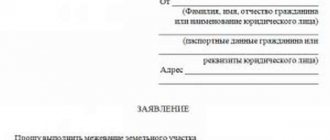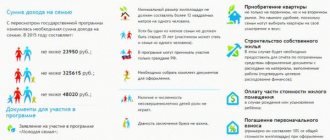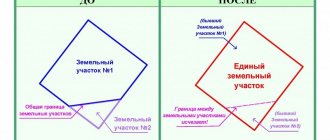Managing Director of the MIEL Brokerage Department Irina Pesic answers:
In Russia, a foreign citizen enjoys the rights and bears responsibility on an equal basis with citizens of the Russian Federation.
It is not prohibited for a foreigner to purchase land, but there are certain restrictions. Thus, plots must be purchased for a fee: that is, a foreign citizen cannot receive a plot free of charge. The next condition is that in Russia a foreigner cannot own land in the border area or within the boundaries of the seaport. The list of such territories is determined by the president of the country. Also, foreigners can use agricultural land only on a lease basis. However, this condition is often circumvented. Foreigners and foreign companies open on the territory of the Russian Federation and acquire these same lands.
Foreigners are also prohibited from having ownership rights to subsoil areas, continental shelves and forests. Such objects are provided only on a lease basis, provided that there is a right to engage in the relevant type of activity.
Is it possible to buy an apartment with a mortgage without Russian citizenship?
How can a foreigner buy an apartment in Russia?
Grounds for the emergence of land ownership
The reason for the emergence of this right to a land plot is several legal facts. They are divided into general and additional. Common ones are built regardless of the conditions of use of the land plot of the previous owner. Additional ones are formed taking into account the ownership rights of the previous owner.
General facts of the emergence of ownership of a land plot include:
- the emergence of a new good;
- transferring ownership of things that have public access;
- when finding a find or treasure;
- during processing and specification of land;
- when acquisitive prescription appears. It appears if a person has been using the land for 15 years, but is not its owner.
Additional facts about the emergence of property rights include:
- nationalization process;
- obtaining ownership of property that belonged to a legal entity;
- in the presence of requisition and privatization;
- upon receipt by the competent authorities of a penalty for the owner’s obligations on his property;
- during the seizure of land from the owner;
It may arise for the new owner when drawing up a contract of sale, exchange, or gift.
Author of the article
Dmitry Leonov
Work experience 15 years, specialization - housing, family, inheritance, land, criminal cases.
Author's rating
721
Articles written
712
about the author
Useful information on land disputes
- Bathhouse registration
- Division of land
- Land plot for commercial development
- Encumbrance of a land plot
- Land surveying
- Clarification of the boundaries of the site
- Registration of ownership
- Plots for large families
- Purchase and sale of plots
- Easement on a land plot
- Re-registration of a plot of land to a relative
- Purchase of land
- Land purchase and sale agreement
- Ownership
- Allocation of land from common shared ownership
- Land lease agreement
- Formation of land plots
- Free use of land
- Site development coefficient
- Categories of land plots and types of permitted use
- Removing the boundaries of the land plot
- The right to permanent, unlimited use of a land plot
- Finding out the owner of the land plot
- The procedure for agreeing on the location of land boundaries
- Signs of unauthorized construction
- Features of land mortgages
- Redemption of land plots
- Seizure of a land plot
- Termination of ownership of a land plot
- Transfer of rights to a land plot
- Procedure for seizure of land
- Market value of land
- Pledge of land
- Waiver of the right to a land plot
- Land plot of a peasant farm
Vladislav Mak, commercial director of Nordest Group, answers:
The Land Code of the Russian Federation establishes the right of foreign citizens, stateless persons and foreign legal entities to acquire ownership of land plots. At the same time, he also established some restrictions. Foreigners, for example, will not be given ownership of plots of land in sanatorium and resort areas, or agricultural land. Industrial zones are not included in this list, and their purchase is permitted if they do not belong to border zones and seaports. For example, a foreign company cannot acquire ownership of land on the territory of the Ust-Luga seaport, but can purchase a plot on the territory of the Phosforit industrial zone in Kingisepp.
In general, the main type of land ownership in our country for a foreigner is renting a plot of land. However, in practice, foreign companies bypass restrictions on the acquisition of land by registering a representative office on the territory of the Russian Federation, to which ownership of the land is registered.
Can an Italian buy land in Crimea?
Is it possible to register in an apartment owned by a foreigner?
How is land ownership determined?
It includes the right of ownership of land, when the owner can carry out any actions at his personal discretion, which should not contradict the acts in force in Russia. Also, the use of the site by the owner should not contradict or violate the rights of other citizens and not cause harm to the environment.
Lawyers distinguish types of land use:
- Federal;
- State;
- Municipal;
- Private. It is noteworthy that the owners of this property can be both an individual and a legal entity.
- Implementation of other forms of ownership.
Alexey Tyo, a lawyer at the De Jure Lawyers Bureau, answers:
The legislation does not prohibit foreign citizens from owning land plots classified as industrial land. At the same time, certain types of land plots may be limited in circulation. For example, foreign citizens do not have the right to own land plots within the boundaries of a seaport or in border areas. Land plots from agricultural lands can be transferred to foreign citizens only for rent.
There are also general restrictions on the turnover of land plots. For example, no one, including citizens of the Russian Federation, can purchase a land plot on which military barracks, military burial grounds, nuclear energy facilities, etc. are located. The circulation of land and forest resources within specially protected natural areas intended for for the construction of transport facilities or highways, etc.
Is it possible to buy real estate under a power of attorney on behalf of a foreigner?
A non-resident gives an apartment to his mother, a resident of the Russian Federation: what about taxes?
The right to lease land from foreign citizens
As a general rule, foreign citizens and stateless persons can own land plots on a lease basis (clause 1 of Article 22 of the Land Code).
Foreign citizens, stateless persons, foreign companies and enterprises with a share of foreign ownership of more than 50% may own agricultural land plots only on a lease basis.
There is only one limitation here:
Foreign citizens, stateless persons and foreign legal entities - owners of buildings and structures located on someone else's land plot have a preferential right to lease a land plot. The President of the Russian Federation may establish a list of types of buildings and structures to which this rule does not apply (clause 5 of Article 35 of the Land Code).
Land use: concept and features
Allotment rights are acquired for the purpose of using land to satisfy certain needs and requirements: conducting agricultural activities, creating and operating real estate.
The subject may carry out other rational use of land plots, if it does not contradict legislative norms and the purpose of the land. As a result of such legal relations, land use rights arise. It is a system of legal norms that regulate the relationships that arise when obtaining the useful properties of land.
Land use subjects are individuals and legal entities. Their use of land plots is carried out on the basis of ownership or use rights.
In these cases, the essence of land use is to extract useful properties from the plot.
It was already mentioned above that land use rights differ from land ownership. In some cases it may be limited. This is due to the purpose of the allotment.
The legislation also provides for some time restrictions.
In land law there is such a concept as the principle of sustainable land use. Its essence is as follows:
- the plot is transferred to the subject for a long period of time;
- conditions are created for the development of its activities;
- protection of his interests is guaranteed;
- The law limits the period for exercising the right to use land.
Concepts of sustainable land use and tenure
The principle of sustainable land use can be implemented in different forms. According to the Land Code of the Russian Federation, there are the following types of land use:
- unlimited or permanent (Article 39.9 of the Land Code of the Russian Federation);
- for a certain period stipulated by the lease agreement (Article 22 of the Land Code of the Russian Federation).
Long periods of land use increase the interest of subjects in the rational use of plots and compliance with requirements for the protection of an important natural resource.
Perpetual rights force users to think about the need to improve the condition of the land, because their performance indicators depend on this, the growth of which leads to increased income.
The principle of sustainability is no less important when exercising property rights. Experts in the field of land law note that it is a prerequisite for the rational use of land. Only a subject who is confident in the stability of his right to land will care about increasing fertility and preserving the land.
The right to land is protected. Its norms guarantee citizens the right to receive land plots. Refusal to provide them can be appealed in court.
The law guarantees freedom of economic activity and defines a list of rights and obligations related to the exploitation of land. The powers of subjects of land ownership and land use are reliably protected by the state.
Difference between land use and land tenure
Those planning to purchase or rent a plot of land should understand the difference between ownership and use.
Ownership implies that the owner has the following powers:
- possession (actual possession), confirmed by an appropriate certificate;
- use;
- order.
Their presence allows the alienation of property. It was mentioned above that the owner can sell the plot, rent it out, use it as collateral, and so on.
Land users can realize their needs only in accordance with relevant legislation and the terms of the agreement on the basis of which they use the plot.
We must also not forget about such a concept as regional characteristics of land use, because the characteristics of some areas allow the use of land only for certain purposes. Users do not have the right to dispose of the site at their own discretion.
So, the main difference between land ownership and land use is that the latter is a component of the former.
Basic moments

All actions of such an owner must not contradict existing legislation or violate the rights of other people.
And also to allow outsiders to interfere in human economic activities on their own plot of land.
The right of ownership, in accordance with paragraph 2 of Article 36 of the Constitution of the Russian Federation, consists of three main powers:
- Ownership of a plot is the legal possibility of owning land. Such ownership is conditional, since the owner’s dominance is limited by the non-movability of the site. In reality, ownership is expressed in drawing the boundaries of the allotment, installing boundary markers that will be protected by law. And also in the construction of a fence, house and other structures. If any of the buildings violates the current regulatory legal act, then it is subject to demolition at the expense of the guilty person.
- Use is the exploitation of a land plot within the limits permitted by law to meet the needs of the owner. That is, the owner of the property has the right to build something on it (for example, a house, barn, fence), carry out land reclamation work, and grow vegetables and fruits. At the same time, economic activities must be organized rationally, without damaging the environment or infringing on the interests of other people.
- A disposition is the right to sell real estate, exchange it for something, give it as a gift, or bequeath it. A person renting a plot can do all this only with the consent of the land owner.





